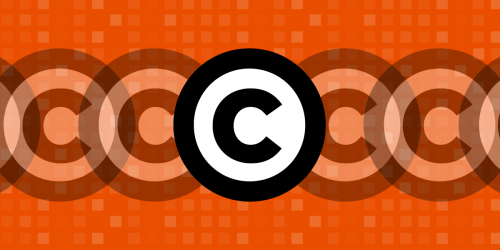La ley de derechos de autor no es una herramienta para castigar o silenciar a los críticos. Este es un principio tan fundamental que constituye el ejemplo por excelencia del uso legítimo, que normalmente permite copiar la obra creativa de otra persona cuando es necesario para realizar una crítica. Sin embargo, en ocasiones, titulares de derechos sin escrúpulos hacen un uso indebido de la ley de derechos de autor para intimidar a los críticos y silenciarlos mediante demandas sin fundamento, amenazándoles con responsabilidades personales potencialmente enormes si no dejan de expresarse. Por eso, la EFF defiende a Zachary Parrish, un padre de Indiana, contra una demanda por infracción de derechos de autor presentada por LifeWise, Inc.
LifeWise produce controvertidos programas de educación religiosa «en horario escolar» para alumnos de escuelas públicas durante el horario lectivo. Tras descubrir el programa en la escuela pública de su hija, el Sr. Parrish cofundó «Parents Against LifeWise», un grupo que se esfuerza por educar y advertir a otros sobre los daños que, en su opinión, causan los programas de LifeWise. Para ayudar a otros padres a tomar decisiones con toda la información necesaria sobre la inscripción de sus hijos en un programa de LifeWise, el Sr. Parrish obtuvo una copia del plan de estudios de primaria de LifeWise, que la organización mantenía en secreto para todos excepto para los instructores y los alumnos matriculados, y la publicó en el sitio web de Parents Against LifeWise. LifeWise envió una notificación de infracción de derechos de autor al proveedor de alojamiento del sitio web para que retirara el plan de estudios, y a continuación presentó una demanda por infracción contra el Sr. Parrish.
La EFF presentó una moción para desestimar el intento infundado de LifeWise de silenciar al Sr. Parrish. Como explicamos al tribunal, la publicación del plan de estudios por parte del Sr. Parrish era un ejemplo paradigmático de uso legítimo, una importante doctrina que permite a críticos como el Sr. Parrish comentar, criticar y educar a otros sobre el contenido de una obra protegida por derechos de autor. La propia demanda de LifeWise demuestra por qué el uso del Sr. Parrish era justo: «su objetivo era recopilar información y documentos internos con la esperanza de publicar en Internet información que pudiera dañar la reputación de LifeWise y animar a los padres a oponerse a las delegaciones locales de LifeWise Academy en sus comunidades». Se trata de una misión de defensa y educación pública que protege la ley de derechos de autor. Además, el propósito del Sr. Parrish no era comercial: lejos de intentar sustituir o competir con LifeWise, publicó el plan de estudios para animar a otros a pensar detenidamente antes de inscribir a sus hijos en el programa. Y publicar el plan de estudios no perjudica a LifeWise, al menos no de ninguna manera que la ley de derechos de autor pretenda abordar. Al igual que los derechos de autor no impiden que un crítico de cine utilice escenas de una película como parte de una crítica devastadora, tampoco impiden que un padre preocupado eduque a otros padres sobre un controvertido programa escolar religioso mostrándoles el contenido real de dicho programa.
Las desestimaciones tempranas en los casos de derechos de autor contra usuarios justos son cruciales. Porque, aunque el uso legítimo protege muchas expresiones libres importantes, como los comentarios y la defensa del Sr. Parrish, luchar por esas protecciones puede resultar muy caro y desalentador. El alto coste de la investigación civil y el riesgo de indemnizaciones astronómicas, que en algunos casos pueden alcanzar los 150 000 dólares por obra, pueden llevar a los posibles usuarios legítimos a autocensurarse por miedo a un proceso judicial invasivo y a la ruina financiera.
La desestimación temprana ayuda a evitar que los titulares de derechos de autor utilicen la amenaza de demandas costosas y arriesgadas para silenciar a los críticos y controlar las conversaciones públicas sobre sus obras. También envía un mensaje a los demás de que su derecho a la libertad de expresión no depende de tener suficiente dinero para defenderlo en los tribunales o de tener acceso a la ayuda de organizaciones como la EFF. Aunque estamos encantados de ayudar, estaríamos aún más contentos si nadie necesitara nuestra ayuda para un problema como este nunca más.
Cuando la sociedad pierde el acceso a los comentarios críticos y al diálogo público que estos permiten, todos sufrimos. Por eso es tan importante que los tribunales impidan que la ley de derechos de autor se utilice para silenciar las críticas y los comentarios. Esperamos que el tribunal así lo haga en este caso y desestime la demanda infundada de LifeWise contra el Sr. Parrish.








